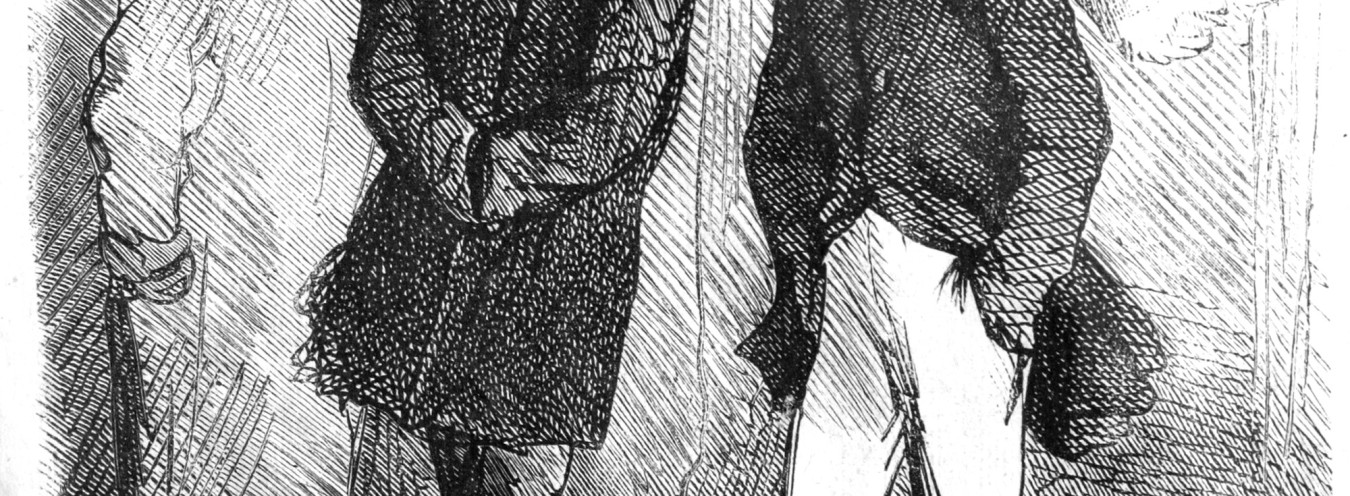
Nihilism
When I communicated my suspicions of these ‘prikashchiki’ to Staś, he merely smiled and replied: ‘This is only the beginning!…’ From this, I conclude that Staś must have gone far in his relations with the nihilists. (138)
Nihilism is a philosophical belief that there is no reliable basis to any doctrine (e.g. ethic and aesthetic) which could help us evaluate the reality around us and pass judgements on the world we live in. In other words, we are always limited to our own opinions and purely subjective viewpoints. Nihilism has wider intellectual, social and political connotations that allow differentiating it from the so-called relativism (the notion that all judgements and values are arbitrary) and immoralism (a radical view that justifies the rejection of all moral principles); some thinkers, however, consider relativism and immoralism to be part of nihilism.
The concept of nihilism was popularised by Prus’s contemporary, German philosopher Friedrich Nietzsche, who actually saw himself as the main opponent of nihilism in European culture. He called it the strange guest, which highlighted the surprising nature of this manifestation at the time of cognitive optimism and civilisational progress.
In The Doll, the terms “nihilist” and “nihilism” are mainly used ironically or humorously. “Nihilists” is how Baroness Krzeszowska refers to the students living in an apartment above her own and ‘tormenting’ her constantly – though their guilt seems to lie not in political views but their provocative lifestyle. (‘And in the evenings the laundrygirls go up there… Sir!’ she exclaimed, pressing her hands together piously, ‘drive those nihilists out, they are a source of depravity and danger to the whole house. They keep tea and sugar in human skulls… They poke the samovar with human bones! They want to bring a whole corpse into the house…’). Also the old clerk, Rzecki, mentions “nihilists”: in his journal, the term is used in reference to the so-called “prikashchiki,” Russian salesmen brought by clerk Mraczewski from the Moscow branch of Wokulski’s store.
What is more, Wokulski’s mind and thoughts revolve around certain motifs related to nihilism. This could be attributed either to the decadent zeitgeist in the Western culture of the late nineteenth century or to the profound inner conflict within the character himself. Wokulski’s nihilist attitude is particularly pronounced after the break-up with Izabela, e.g. during his solitary walk in the Łazienki park: He walked to the lake and gazed indifferently at the boats and swans. Then he turned down the path leading to the Orangery. […] But as he was coming back the same way, rage overcame him and he rubbed out his own footsteps with the fierce joy of a mischievous urchin: ‘If only I could erase everything thus… That stone, and the ruins… Everything!’ At this moment he felt an unconquerable urge to destroy certain things awakening in him: but at the same time he realised it was an unhealthy symptom.
The above passage seems to indicate the author’s interesting psychological and sociological insight, namely a suggestion that the roots of philosophical, political and social nihilism can be found in the psyche and emotions of an individual; if this type of disposition develops on a mass scale, it may play a major role in shaping the history of entire societies and states.
→ Decadent Movement; → Philosophy;
Bibliografia
- Ł. Książyk, Nihilizm gnostycki w kulturze przełomu XIX i XX wieku. Rekonesans, Warsaw 2010.



